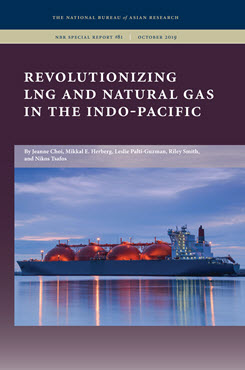Developing Free and Open Markets
Gas Market Reform in Japan and South Korea
This essay examines the progress of gas market liberalization in Japan and South Korea and draws lessons from these two case studies that may provide a template for other countries in the Indo-Pacific.
Executive Summary
MAIN ARGUMENT
Gas market reform is a complex legal, political, and economic process requiring careful planning and sustained commitment by policymakers. This essay provides an overview of the pre-reform gas market structures in Japan and South Korea and the liberalization process undertaken in each country, focusing on the privatization of state-owned companies, the dismantling of monopolistic market sectors, unbundling and open-access regimes, and the roles played by the national pipeline network, labor movements, and U.S. diplomatic pressure. Japan’s relative success in reforming its already public sector–oriented market in order to introduce greater competition and South Korea’s problems in privatizing its state-owned gas company suggest that market liberalization requires sustained commitment over a long period. This is especially the case when public sector–dominated monopolies are involved.
POLICY IMPLICATIONS
- The duration of market liberalization is related to the structural starting conditions. Markets that are dominated by monopolistic state-owned companies face the additional hurdle of privatization, which is often opposed by labor unions and other political interest groups.
- Market liberalization requires sustained political commitment over many Even in the case of Japan, where reform promoted unbundling and open-access regimes for gas infrastructure in an already relatively private sector–oriented market, full liberalization took over 22 years.
- Exogenous factors, such as crises or natural disasters, can have a significant effect in either increasing public support for market reform measures or rousing opposition to further liberalization. At these critical junctures, policymakers must recommit to the process in order to avoid derailment.
- Open-access regimes for infrastructure can increase market competition by introducing new entrants; they thus are a critical component to dismantling monopolistic market systems.
Jeanne Choi is a Nonresident Fellow at the National Bureau of Asian Research and a PhD candidate in Northeast Asian Studies and Energy, Resources, and Environment at the Johns Hopkins University School of Advanced International Studies. She is also a Fellow with the National Asia Research Program.



